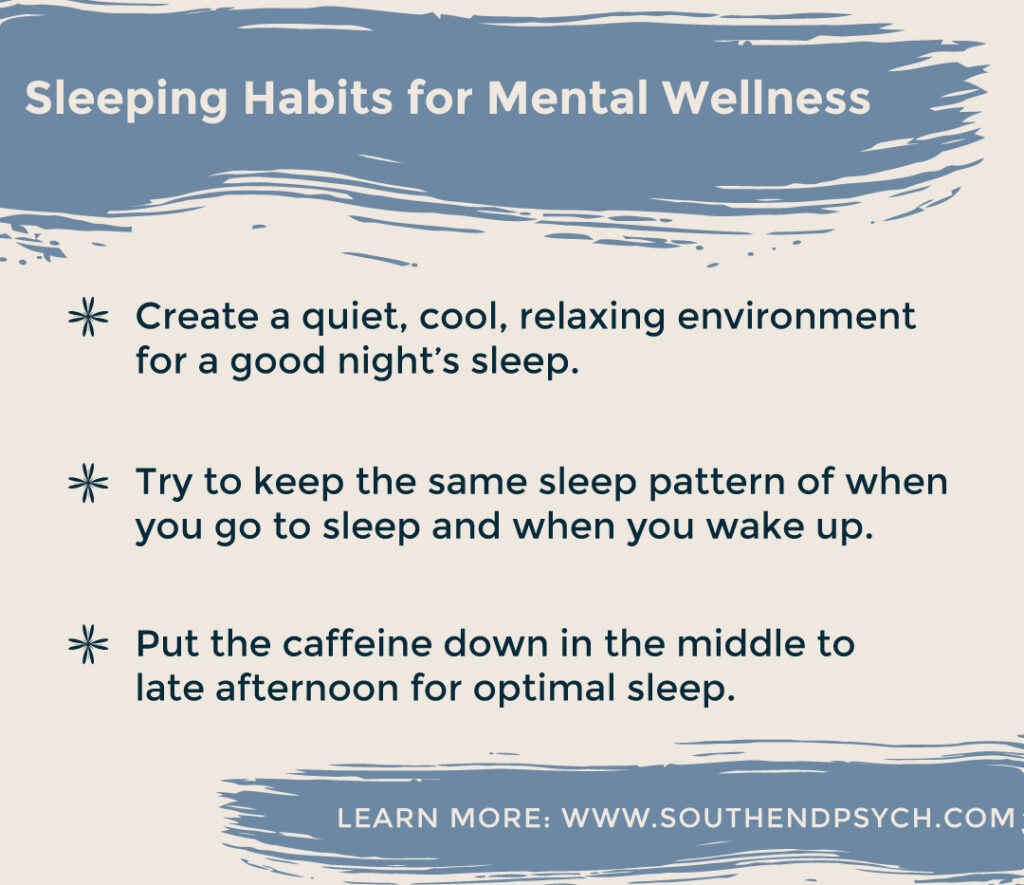As we recognize and raise awareness for Mental Wellness Month this January, we would like to take a look at what mental wellness looks like in 2024. Times have changed. I think we can all agree on that. COVID has changed the behavior of society in so many ways. Racial tension and social disparities are on the rise. Economic stress is affecting all walks of life. This is the day we are living in.
We want to recognize these as real triggers for most of us. As we embark on this new year, it is so important to acknowledge these issues and stressors and be intentional to keep ourselves healthy and whole. A few ways we can do this is through mindfulness, rest and connection.
Mindfulness
The term “mindfulness” is becoming more and more widely known. As stated by discoverymood.com, practicing mindfulness is about being aware and accepting at the same time. We often pride ourselves on staying busy and thinking ahead. Mindfulness challenges us to show up fully in every area of our lives. It is the embodiment of living in the moments.
Check in on yourself. Where is your stress level? Are you feeling hopeless or helpless? If so, it is critical to take action by calling a friend, mentor or a licensed professional like the team at Southend Psychiatry.
Rest
Allowing ourselves to rest involves our mind, body and spirit. Resting isn’t just about getting a proper eight hours of sleep each night or avoiding your phone and electronics before bed. It is also giving yourself little breaks throughout the day. Meditation is a great tool to help slow the mind, release anxious thoughts and breathe deeply. This lowers our cortisol levels and resets the body with just a few minutes of commitment.
Developing a meditation practice not only has been shown to help lengthen our attention span and reduce age-related memory loss but may also help fight addictions, control pain and decrease blood pressure.
Connection
We are social creatures… even those that would consider themselves as an introvert. Our spirit needs connection. It is a way to feel heard and understood. Connection gives us a sense of belonging. executive.berkeley.edu/ says that because social connection is so hard-wired into human behavior, it makes sense that our relationships (or lack thereof) significantly influence our well-being.
Connections can be just as important to physical and mental health as exercise and healthy eating. Research has shown that the psychological and physical health benefits of social contact are so great that they can even outweigh the harmful effects of other risk factors and boost life expectancy.
As you embark on this new year, we want to encourage you to be intentional about keeping yourself mentally well. If you need help or guidance, SouthEnd Psychiatry is here for you. Our amazing team of licensed therapists are ready to walk along side you in this journey.
Contact Southend Psych today to inquire about appointment availability and get you on your way to a better place.
Southend Psychiatry
Schedule your appointment today with one of our SouthEnd Psychiatry clinicians. Book your appointment online or call 1-800-632-7969 to get started today.





